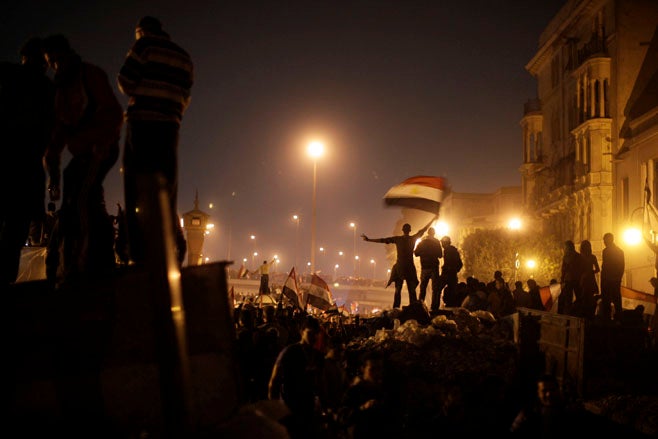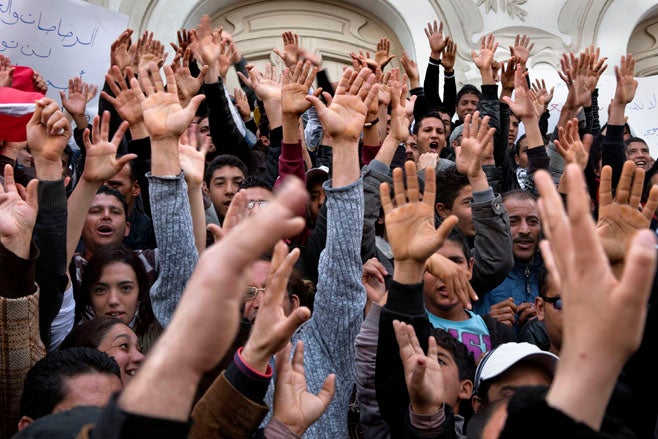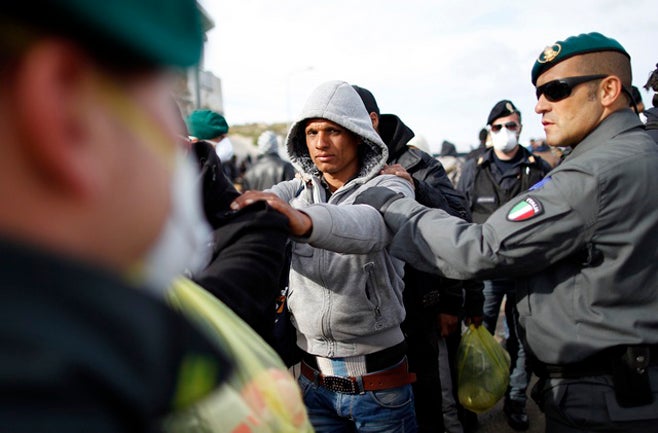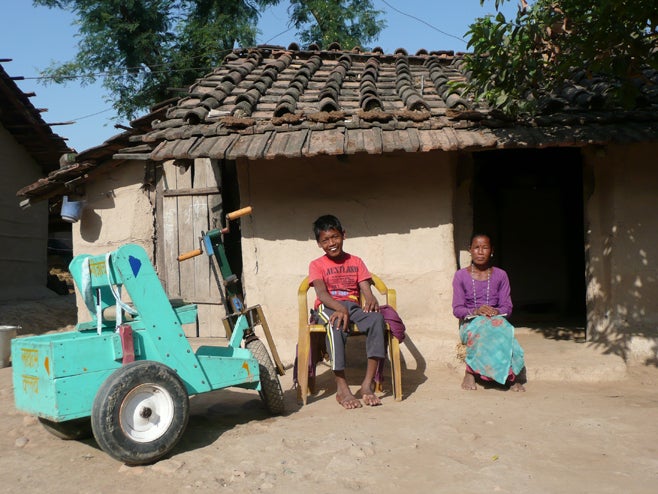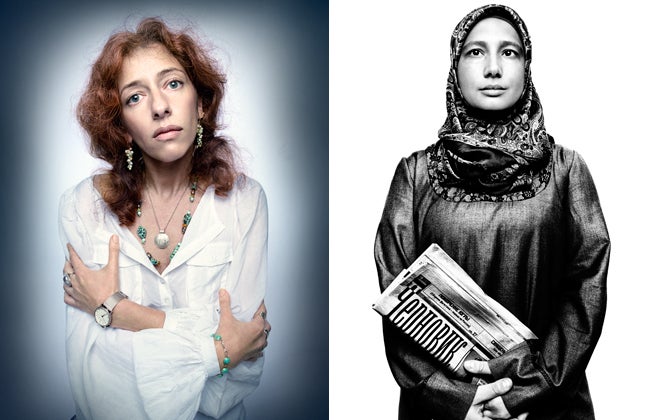At least 3,000 people were killed and more than 150 women and girls raped during the six months of political violence and armed conflict which followed the November 28, 2010 presidential run-off election between opposition leader Alassane Ouattara and incumbent President Laurent Gbagbo. Despite internationally recognized results proclaiming Ouattara the winner, Gbagbo refused to step down. Large-scale violence ended in May, after the April capture of Gbagbo and Abidjan, the commercial capital, by pro-Ouattara troops.
After consolidating power President Ouattara made repeated commitments to investigate and ensure impartial justice for the massive human rights and international humanitarian law violations that characterized the period. However, one-sided domestic justice efforts, which excluded charges against any member of his camp, threatened further communal divisions and undermined the return to the rule of law.
International actors that had rightfully taken a hardline stance against the Gbagbo camp’s abuses during the conflict—including the United Nations, the European Union, France, and the United States—appeared less willing to publicly pressure Ouattara’s government on the same issues and on the importance of impartial accountability.
Post-Election Violence
From December 2010 to late February 2011 the post-election violence was primarily perpetrated by security forces and allied militia loyal to Gbagbo, which sought to maintain power by systematically targeting real or perceived Ouattara supporters. Pro-Gbagbo forces “disappeared” neighborhood political leaders from Ouattara’s coalition, gang-raped women and girls who had helped mobilize voters, and violently suppressed any demonstration against Gbagbo’s refusal to step down. State-controlled media routinely incited hatred and violence against northern Ivorians and West African immigrants. As a direct consequence, pro-Gbagbo militias established roadblocks around Abidjan and killed scores from these typically pro-Ouattara groups during moments of tension.
In early March forces loyal to Ouattara—composed primarily of soldiers who fought with his prime minister, Guillaume Soro, during the 2002 to 2003 conflict and its aftermath—launched a military offensive to remove Gbagbo from power. Once the crisis escalated to armed conflict, it was marked by war crimes and likely crimes against humanity by both sides.
The west of the country, which has long been its most volatile region, was the scene of massacres committed by both sides in late March. In Bloléquin and Bédi-Goazon, pro-Gbagbo militiamen and Liberian mercenaries killed at least 130 men, women, and children from groups that largely supported, or were perceived to support, Ouattara. In Duékoué, the Republican Forces and allied militias killed several hundred men from pro-Gbagbo ethnic groups after taking control of the town on March 29. Throughout the west, pro-Ouattara forces killed, raped, and burned villages. At the conflict’s peak more than 180,000 Ivorians fled to Liberia; at this writing most refugees remained there, often without a home to return to, and afraid of abuse should they return to villages that still exist. Several hundred thousand more remain internally displaced for similar reasons.
After taking over the west, the Republican Forces advanced to Abidjan in several days as most Gbagbo fighters laid down their weapons and fled. However, intense fighting engulfed Abidjan in early April, before Gbagbo’s April 11 capture. In subsequent days pro-Gbagbo militiamen rampaged in areas they still controlled, killing hundreds of perceived Ouattara supporters. The Republican Forces engaged in widespread summary executions, torture, arbitrary detention, and looting as they consolidated control of the commercial capital.
National-Level Justice and Accountability
The capture of Gbagbo and his wife Simone began a wave of arrests against the former regime’s military and political leaders. At this writing military and civilian prosecutors had brought charges against at least 118 of these officials including Gbagbo, Simone, Charles Blé Goudé, Gen. Guiai Bi Poin, and Gen. Bruno Dogbo Blé. The civilian prosecutor primarily limited the charges to economic crimes and crimes against the state—including charges against Gbagbo—whereas the military prosecutor included charges for murder, rape, and other violent crimes. In stark contrast, at this writing not a single member of the pro-Ouattara forces had been charged for crimes committed during the post-election crisis.
Almost immediately after the conflict ended Ouattara called for a Dialogue, Truth, and Reconciliation Commission (DTRC) and then named former Prime Minister Charles Konan Banny as the commission’s president. The commission formally began working on September 28. The DTRC’s potential efficacy was undermined by inadequate consultation with Ivorian civil society, lack of independence from the presidency, an unclear relationship with prosecution efforts, and ill-defined powers.
The president also established a national commission of inquiry to provide conclusions on how and why massive human rights violations occurred. The commission, which began its work on September 13 and had a six-month mandate that could be extended for another six months, was tasked most importantly with identifying individuals who should be subject to criminal prosecution. However, the nomination of a commissioner perceived to be close to the president, as well as the process that created the commission, raised concerns about its independence from the presidency and commitment to faithfully and impartially investigate abuses perpetrated by both sides.
International Criminal Court
In December 2010 and again in May 2011 Ouattara confirmed the authority of the International Criminal Court (ICC) to investigate crimes under its jurisdiction. Although not a state party to the Rome Statue, the Ivorian government under Gbagbo had accepted the ICC’s jurisdiction in April 2003. However, in Ouattara’s May request reconfirming the court’s jurisdiction, he asked it to limit its investigation to crimes committed after November 28, 2010. Ouattara did publicly express his expectation that the ICC would examine both sides’ crimes, and that the government would cooperate in handing over any individuals requested.
On June 23 the ICC prosecutor asked the pre-trial chamber for authorization to open an investigation, limiting his inquiry into post-election crimes. This request for a temporal restriction drew criticism from many, including a coalition of Ivorian civil society organizations that stressed the importance of investigations going back to 2002, given the gravity, scale, and complete impunity for these crimes.
On October 3 the pre-trial chamber authorized the prosecutor’s investigation into the post-election crimes and requested that he provide further information on crimes committed between 2002 and 2010 to determine possible expansion of the investigation.
Ongoing Insecurity and Reestablishing the Rule of Law
Widespread recruitment of ethnic-based militia by both sides, as well as long-standing weaknesses within the Ivorian judiciary, contributed to ongoing levels of criminal and political violence countrywide, illuminating the urgent need for a credible disarmament program. Several cross-border attacks on Ivorian villages by former Gbagbo militiamen, who have taken refuge in Liberia raised concerns about continued instability in the long-volatile west.
At this writing most gendarmes and police—particularly outside Abidjan—were still unarmed, leaving security functions largely in the hands of soldiers and youth volunteers loyal to Ouattara. The result is an extra-judicial system similar to that which plagued the north when controlled by Soro’s forces after 2002: arbitrary detention, disputes “resolved” by soldiers, and extortion. By September the Ouattara government had notably removed most roadblocks along the main roads, and threatened to dismiss soldiers found extorting the population. These steps helped combat the rampant checkpoint extortion that has impacted northern and southern Côte d’Ivoire since 2002.
Legislative elections were scheduled for December 11. If free and fair, they offer an important step in the return to rule of law, instead of rule by presidential decree.
Key International Actors
Gbagbo’s refusal to recognize defeat elicited widespread condemnation by the international community, notably the UN, Economic Community of West African States (ECOWAS), EU, France, and the US. Concerted diplomatic pressure on Gbagbo to step down was exerted through repeated demarches, threat of military intervention by ECOWAS, and economic strangulation. The Central Bank of West African States cut off funds, and the EU and US imposed targeted sanctions against leading members of the regime and key Ivorian entities supporting the regime financially.
The UN, which had for years failed to adequately confront Gbagbo on his human rights record and the repeated delays in organizing elections, took a committed stand on enforcing the election result. The UN’s endorsement of Ouattara’s victory led to repeated threats and attacks by Gbagbo’s forces against peacekeepers and civilian UN staff, and at times a closing of humanitarian space.
Citing Gbagbo’s use of heavy weapons in indiscriminate attacks that killed civilians, the UN Security Council authorized the UN Operations in Côte d’Ivoire (UNOCI) to use “all necessary means” to protect civilians, including through “prevent[ing] the use of heavy weapons against [civilians].” UNOCI and French forces deployed since 2004 quickly began targeting heavy weapons, culminating in an attack on Gbagbo’s residence that led to his arrest. Throughout the conflict, UNOCI played a key, if inconsistent, role in civilian protection, including reinforcing its presence in the west ahead of legislative elections.
The UN Human Rights Council established a commission of inquiry in late March to investigate post-election crimes. In mid-June it presented the Council with its report that found both sides responsible for war crimes and likely crimes against humanity. The Council then established an independent expert on the situation of human rights in Côte d’Ivoire. The commission of inquiry’s report included an annex containing names of individuals deemed to merit criminal investigation for their role in crimes. While this annex has been provided to the Office of the High Commissioner for Human Rights, it had not been made available to relevant Ivorian authorities at this writing, thereby failing to contribute to accountability. The UN Security Council has also not published the findings of the 2004 commission of inquiry that investigated serious violations of human rights and international humanitarian law during the 2002 to 2003 armed conflict. The report was delivered to the UN secretary-general in November 2004.
